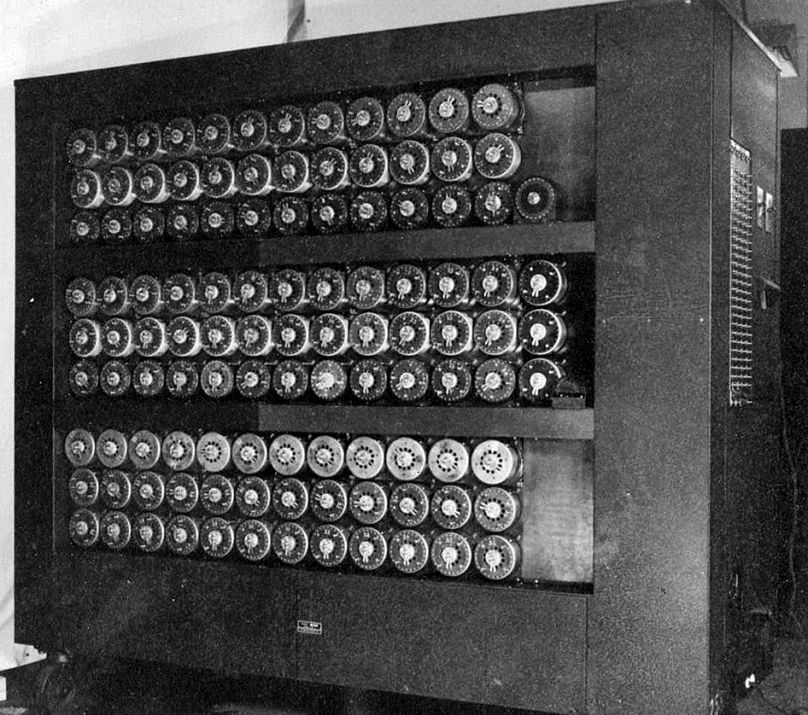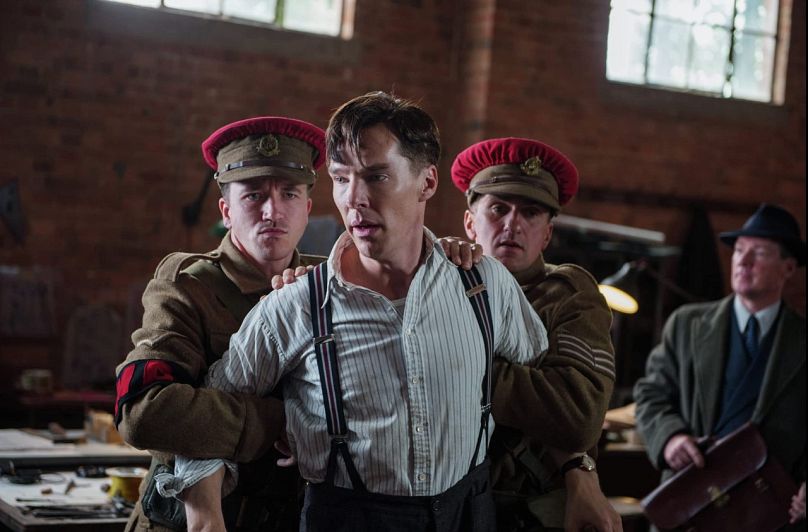7 June 1954: Alan Turing dies
As it’s Pride Month, it feels important to highlight some momentous LGBTQ+ figures in history. Today is the anniversary of the death of Alan Turing, an English mathematician whose contributions to programming helped Britain win the Second World War. Despite his momentous contribution to the UK’s continued existence against Nazi forces, he committed suicide after being chemically castrated by the state for his sexuality.
 ADVERTISEMENT
ADVERTISEMENT
 ADVERTISEMENT
ADVERTISEMENT
Alan Turing was born on 23 June 1912 in London. From an early age, his mathematical brilliance was apparent and he went on to study the subject at Cambridge University. During his time at university, Turing specialised in computational mathematics, which dealt in the early days of programming. He came up with the concept of a “Turing Machine”, his conceptual version of a computer that can take in an infinite number of mathematical rules and produce an infinite number of mathematical results.
The Turing Machines that Turing modelled have been foundational for the design of many areas of computation in the decades since then.
By the end of the 1930s, Turing was well established as one of the most formidable minds in mathematics thanks to his ingenious models. When war broke out at the end of the decade, he had already been recruited by Government Code and Cypher School, today known as GCHQ, to help break the Nazis’ encrypted messaging system.
Turing, alongside Alfred ‘Dilly’ Knox were tasked with breaking the code of the Enigma Machine, a cipher created by the Nazis to scramble their messages. As someone pressed in a letter of the alphabet, the Enigma Machine then converted it into an entirely unreadable message for anyone without the code.
Working from Bletchley Park, Turing followed on from Polish breakthroughs to crack the Enigma code. With this, Turing built the bombe, a complicated set of rotating dials that could be adjusted to figure out the code the Nazis were using, which they changed daily.
Thanks to the bombe, Turing helped the Allied Powers interpret many of the Axis’ messaging, which according to some historians may have saved up to 14 million lives and shortened the war by over two years.
It wasn’t just the bombe that Turing created though. He was also responsible for deducing procedures used by the German navy, improving the bombe with a statistical procedure called ‘Banburismus’, as well as developing a secure voice for Allied forces to communicate with called ‘Delilah’.
Despite this, Turing’s legacy is also one of Britain’s hostility to homosexuality. In 1952, Turing was in a relationship with Arnold Murray while living in Manchester. When Turing’s house was burgled by an associate of Murray, Turing reported the crime to the police and disclosed his sexuality.
At the time, homosexuality was illegal in the UK and the pair were charged with “gross indecency”. Turing’s lawyer didn’t fight the case and he was convinced to enter a guilty plea.
Turing lost his security clearance with the British Secret Service. Facing imprisonment, he opted instead for chemical castration. Just two years later, Turing died of cyanide poisoning in an apparent suicide. He was 41 years old.
A campaign to have Turing formally pardoned by the British state gained momentum in the early 2010s and in 2013, Queen Elizabeth II signed the pardon, with the official pronouncement in 2014.
In 2016, a new law was created to retroactively exonerate other men convicted of similar offences. It’s known as the ‘Alan Turing Law’.
Turing’s life was dramatised in the 2014 drama The Imitation Game which starred Benedict Cumberbatch and won the Oscar for Best Adapted Screenplay. In Manchester, where Turing lived the last years of his life, there are many dedications to him, including a statue of him in Sackville Park, besides the history Gay Village of the city.












